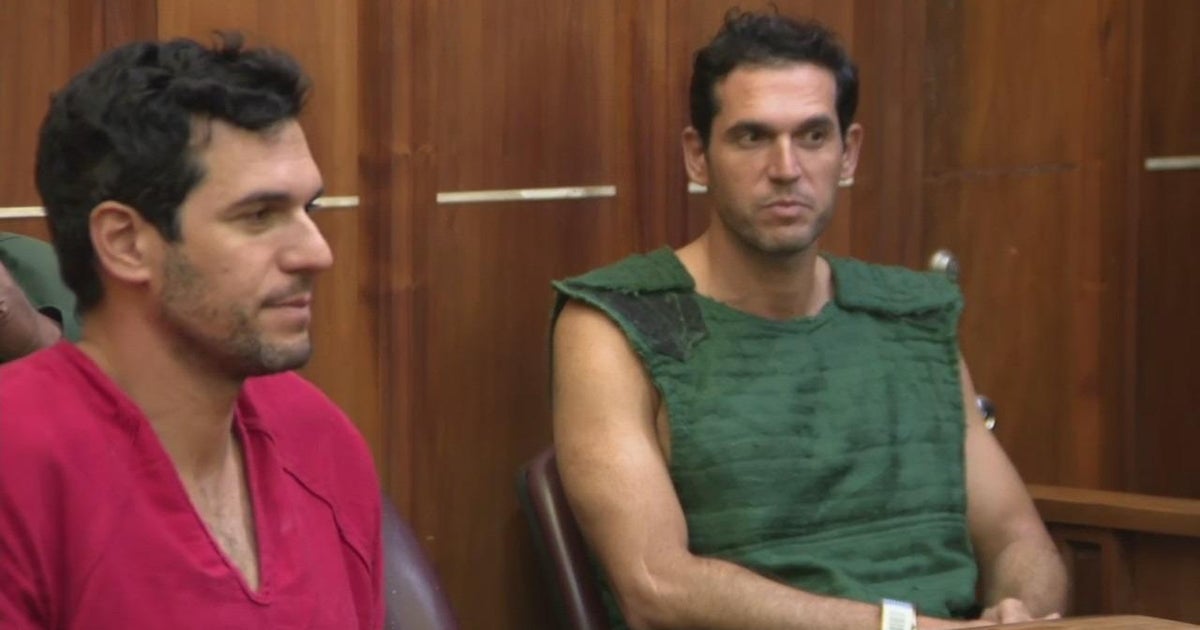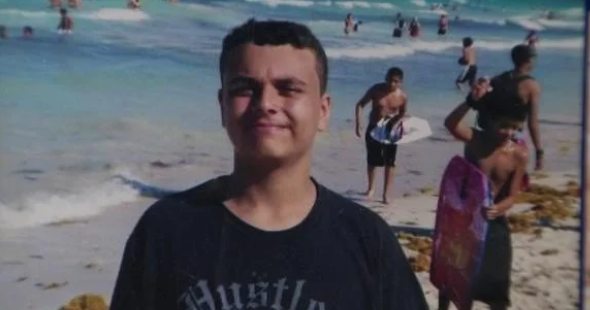Alex Saab's Attorneys Fear For Family In Venezuela After Revelation Businessman Was DEA Informant
MIAMI (CBSMiami/AP) - A Colombian businessman linked to Venezuelan leader Nicolás Maduro secretly worked for the Drug Enforcement Administration as a cooperating source in 2018 and provided agents with information about bribes he paid to officials as well as forfeiting more than $9.5 million in illegal proceeds he earned from corrupt state contracts.
The revelation was made public following a heated closed-door hearing Wednesday in Miami federal court in which attorneys for Alex Saab argued his family in Venezuela could be jailed or physically harmed by Maduro's government if his interactions with U.S. law enforcement became known.
"They are basically under the thumb of the government," attorney Neil Schuster argued in the hearing, a transcript of which was later unsealed by Judge Robert Scola.
"If the Venezuelan government finds out the extent of what this individual has provided, I have no doubt that there will be retaliation against his wife and his children."
The U.S. has described Saab as the main conduit for corruption in Venezuela, someone who reaped huge windfall profits from dodgy contracts to import food while millions in the South American nation starved. The Maduro government considers him a diplomat who was kidnapped during a refueling stop while on a humanitarian mission to Iran made more urgent by U.S. sanctions.
The Associated Press in November reported that Saab has held several meetings with U.S. law enforcement in his native Colombia as well as Europe. As part of his cooperation, he wired three payments to a DEA-controlled account containing nearly $10 million obtained through corruption, stating that he had paid bribes to Venezuelan officials.
However, he was deactivated as a source after failing to meet a May 30, 2019, deadline to surrender himself. Two months later, he was sanctioned by the Trump administration and indicted in Miami federal court on charges of siphoning millions from state contracts to build affordable housing for Venezuela's socialist government.
Saab, shackled and wearing a beige jumpsuit, attended Wednesday's hearing. The public was briefly barred from the courtroom as the two sides haggled over whether two documents filed by prosecutors nearly a year ago, while Saab was fighting extradition from Cape Verde, should remain sealed.
With the courtroom sealed, Schuster asked for Saab to be released on bond in light of his multi-year cooperation — something other attorneys for Saab have always denied.
Judge Scola immediately rejected the idea, citing Saab's failure to surrender and past attempts to evade extradition, according to a transcript of the closed proceedings that he ordered unsealed.
"So you are going to have all this evidence that this guy is a flight risk, he's involved in this humongous crime, he's tried it, he fought extradition, and the judge inexplicably grants him a bond?" Scola said.
Prosecutors a year ago had sought to keep secret those meetings with U.S. law enforcement out of concern for Saab's safety and that of his family, some of whom are still in Venezuela.
But they downplayed any such dangers on Wednesday, saying Saab's legal team hadn't taken them up on an offer to assist his family in leaving Venezuela. Scola agreed, saying the public's right to access criminal proceedings outweighs any concerns about his family's safety.
The details of Saab's outreach to U.S. law enforcement surfaced in a related case involving a University of Miami professor who served as an intermediary for payments Saab was making to his U.S. attorneys.
Another Saab attorney, who is fighting to get Saab's status as a Venezuelan diplomat recognized by the U.S. Court of Appeals in Atlanta, vehemently rejected claims that the businessman had been cooperating with U.S. investigators.
New York-based David Rivkin, who was not present in court Wednesday, said the sole purpose of Saab's meetings with U.S. law enforcement officials was to clear his name and were undertaken with the "full knowledge and support" of Maduro's government. He said the release of the document, at the request of the Department of Justice, is no more than an attempt to harm Venezuela's interests, its relationship with Saab, and illustrates the weakness of the government's case.
"Alex Saab remains a loyal citizen and diplomat of the Bolivarian Republic of Venezuela and will never do anything to harm the interests of the country and people that have given him so much," Rivkin said in a statement.
As part of U.S. criminal investigations, it's common for targets to meet with U.S. law enforcement agents to sniff out information about the probe.
However, the documents unsealed Wednesday described Saab's cooperation as "proactive" and more extensive and meaningful than previously believed.
According to prosecutors, the first debriefing with agents from the DEA and Federal Bureau of Investigation took place in Colombia's capital of Bogota over two days in August 2016. Other meetings in which Saab was represented by Colombian and U.S. attorneys ensued and in 2018 he was signed up as a cooperating source after stating to agents that he had paid bribes to Venezuelan officials, none of whom were named in the documents unsealed Wednesday.
At the last meeting, in Europe in April 2019, he was warned that if he didn't surrender by the May deadline he would be sanctioned and criminally charged, something that indeed happened in July 2019.
(© Copyright 2022 CBS Broadcasting Inc. All Rights Reserved. The Associated Press contributed to this report.)



